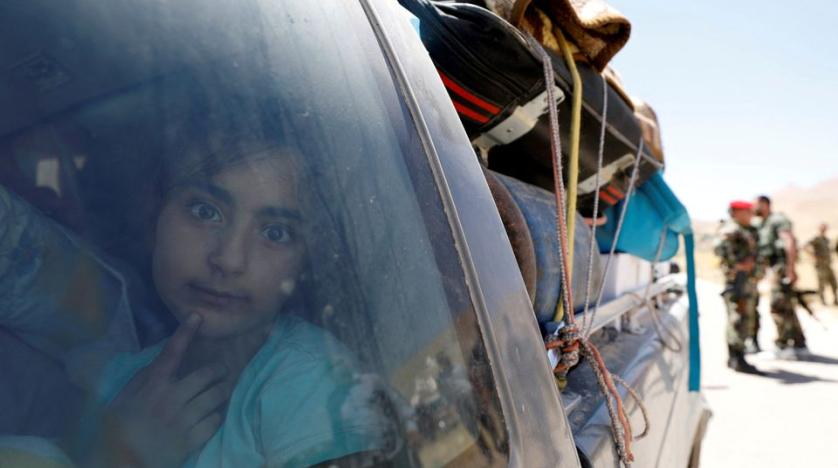Lebanon will start sending Syrian refugees back to their home country at the end of next week, Lebanese President Michel Aoun said on Wednesday, despite rights groups’ fears for their safety.
Lebanon hosts the highest number of refugees per capita in the world. The government estimates that the country’s population of over 6 million includes roughly 1.5 million refugees from neighbouring Syria, though well under 1 million are registered with the UNHCR.
An official source said that the returns would only include those who had voluntarily signed up to go back with Lebanon’s General Security agency, in coordination with the country’s social affairs ministry, and would not be forced to leave.
General Security and social affairs ministry officials did not immediately respond to Reuters’ requests for comment.
In July, Lebanon’s minister for displaced people, Issam Charafeddine, announced a plan that he said would seek to return some 15,000 refugees to Syria per month, basing his move on a claim that Syria had become largely safe after more than a decade of war.
The plan would not involve the UNHCR, which maintains that conditions in Syria do not allow for the large-scale return of refugees.
The UNHCR did not immediately respond to a request for comment on Wednesday.
New York-based advocacy group Human Rights Watch (HRW) said in July that “Syria is anything but safe for returnees”.
“Syrian refugees who returned between 2017 and 2021 from Lebanon and Jordan faced grave human rights abuses and persecution at the hands of the Syrian government and affiliated militias,” Lama Fakih, director of HRW’s Middle East Division, wrote in a post.
Syrian President Bashar al-Assad issued a sweeping amnesty earlier this year for a range of crimes which says it includes those committed by Syrians who fled their country during the 11-year conflict.
Syrian authorities have also said they have eased measures for those who have fled their compulsory military service, a major push factor for young men fleeing Syria, including to Lebanon.
But rights groups and diplomats have warned that those guarantees are not sufficient.
In its September report, the United Nations’ Syria commission said the country was still not safe for returnees.
Pro-government Athr Press reports on “agreement”
After Lebanese President Michel Aoun announced that the process of returning displaced Syrians to their country would begin in batches, starting next week, the Minister of Social Affairs in the caretaker government, Hector Hajjar, revealed that there is a political agreement under which Lebanon guarantees the safe return of the displaced.
“For a long time, we have been preparing for the safe return of displaced Syrians. This is a political agreement within Lebanon, and we agree on their safe return. President Michel Aoun announced, on Wednesday, that the first group of returns will be launched within days,” Hajjar said, according to the Russian agency Sputnik.
“The director general of General Security, Major General Abbas Ibrahim, was appointed a while ago to follow up with the Syrian brothers. Public security centers were opened to register those wishing to return to Syria,” Hajjar said.
“The mechanism adopted is that those who wish to return to Syria register their name in the General Security centers, which in turn scrutinizes the names with the Syrian authorities. The displaced Syrians are transferred to their areas or other areas in Syria temporarily, and then their return to their property and livelihoods is followed,” he said.
Regarding the possibility of success of this procedure, Hajjar pointed out that “there is no escape from success, and we have no solution but success in the return of displaced Syrians.” He added: “We have repeatedly warned of successive crises regarding the presence of displaced Syrians in Lebanon. Today, a part of them is displaced, a part is invested, and a part is waiting to go to Europe.”
Hajjar stressed that “Lebanon can only succeed because it has repeatedly warned us of health problems. Today, on the issue of cholera, we warned that the international community would withdraw its hand from the support and the follow-up of sanitation and water and the removal of waste in the camps. The situation is not tolerated by Lebanon, and we cannot afford this number. There is no solution except for the success of the safe return to Syria. Regarding those who cannot return, the countries that want and encourage their stay should receive them.”
The Syrian Observer has not verified the content of this story. Responsibility for the information and views set out in this article lies entirely with the author.


